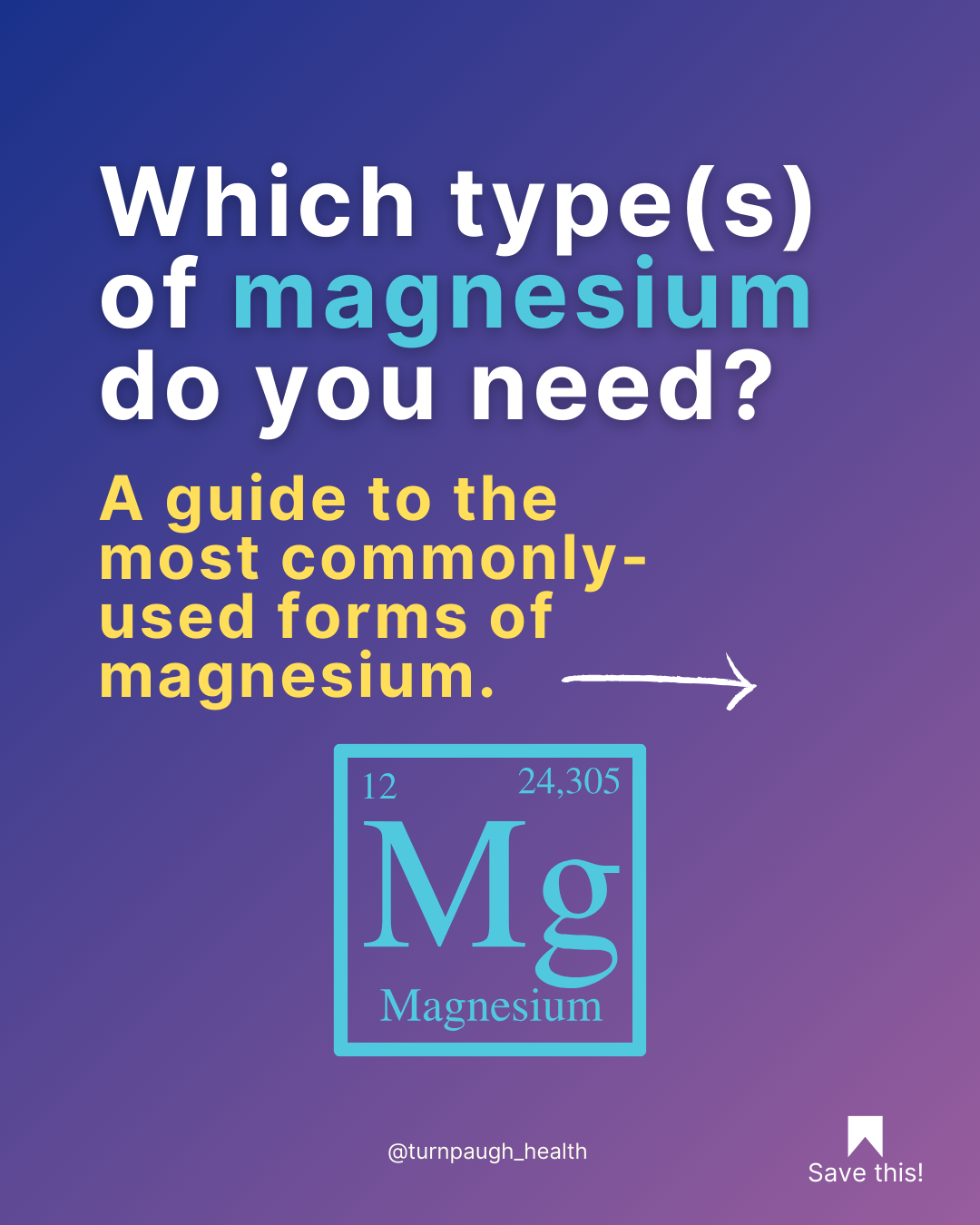
Spring into Wellness – Registration Now Open! Click here to learn more.
Benefits: Primarily used to relieve constipation and as an antacid.
Bioavailability: Low, as it’s poorly absorbed in the digestive tract. This is why it’s not a great form to take.
Best Used For: Short-term relief from heartburn and indigestion, occasional constipation.
Pros and Cons: Inexpensive but can cause stomach cramps and diarrhea due to its laxative effect.
Foods: Green vegetables, nuts, seeds, and whole grains.
Benefits: Known for its use in Epsom salts; helps with muscle relaxation and detoxification.
Bioavailability: Generally used externally, so bioavailability through skin absorption varies.
Best Used For: Soaking baths for muscle soreness and minor sprains.
Pros and Cons: Not typically ingested; can cause dehydration and electrolyte imbalances if used excessively in baths.
Foods: Rare in foods, mostly used in its salt form for external application.
Benefits: Energy production, muscle soreness relief, and may benefit those with fibromyalgia.
Bioavailability: Moderate to high.
Best Used For: Chronic fatigue and fibromyalgia, as it’s gentle on the stomach.
Pros and Cons: Can be energizing so it might disturb sleep if taken late in the day.
Foods: Fruits, especially apples, are a good source of malic acid which combines with magnesium.
Benefits: Improves digestion, kidney function, and is easily absorbed.
Bioavailability: High.
Best Used For: General magnesium supplementation such as in electrolyte blends; topical applications for skin health.
Pros and Cons: Can cause digestive upset if taken in high doses.
Foods: Seawater, tofu.
Benefits: Notable for its ability to penetrate the blood-brain barrier, potentially improving memory and cognitive function.
Bioavailability: High, particularly effective in reaching brain cells.
Best Used For: Cognitive health, memory, and brain function support.
Pros and Cons: More expensive, limited research compared to other forms.
Foods: Not typically found in foods; mostly available in supplement form.
Benefits: Constipation relief; also supports bone health, heart function, and migraine prevention.
Bioavailability: High.
Best Used For: Constipation, as well as a general magnesium supplement due to good absorption.
Pros and Cons: Can cause dehydration and electrolyte imbalance if used excessively for constipation.
Foods: Citrus fruits have citric acid, which can combine with magnesium in the body.
Benefits: Promotes relaxation, supports good sleep quality, and is gentle on the stomach.
Bioavailability: High, and less likely to cause laxative effects.
Best Used For: Stress relief, sleep support, sore muscles, and those with a sensitive digestive system.
Pros and Cons: Can be more expensive than other forms; some users report a calming effect.
Foods: Found in a variety of foods like spinach, legumes, nuts, seeds, and whole grains.
This is due to factors like poor dietary habits, soil depletion reducing magnesium in crops, and lifestyles that increase the need for magnesium (stress, excessive caffeine, sugar, and alcohol intake). Magnesium plays a critical role in over 300 enzymatic reactions in the body, including energy production, DNA synthesis, and muscle and nerve function. Its deficiency can lead to a variety of health issues, including muscle cramps, slow motility, sleep disturbances, headaches, and chronic fatigue. Supplementing with magnesium can be crucial for maintaining optimal health and preventing deficiency-related problems.
Our top-selling magnesium supplement is Mag Glycinate
